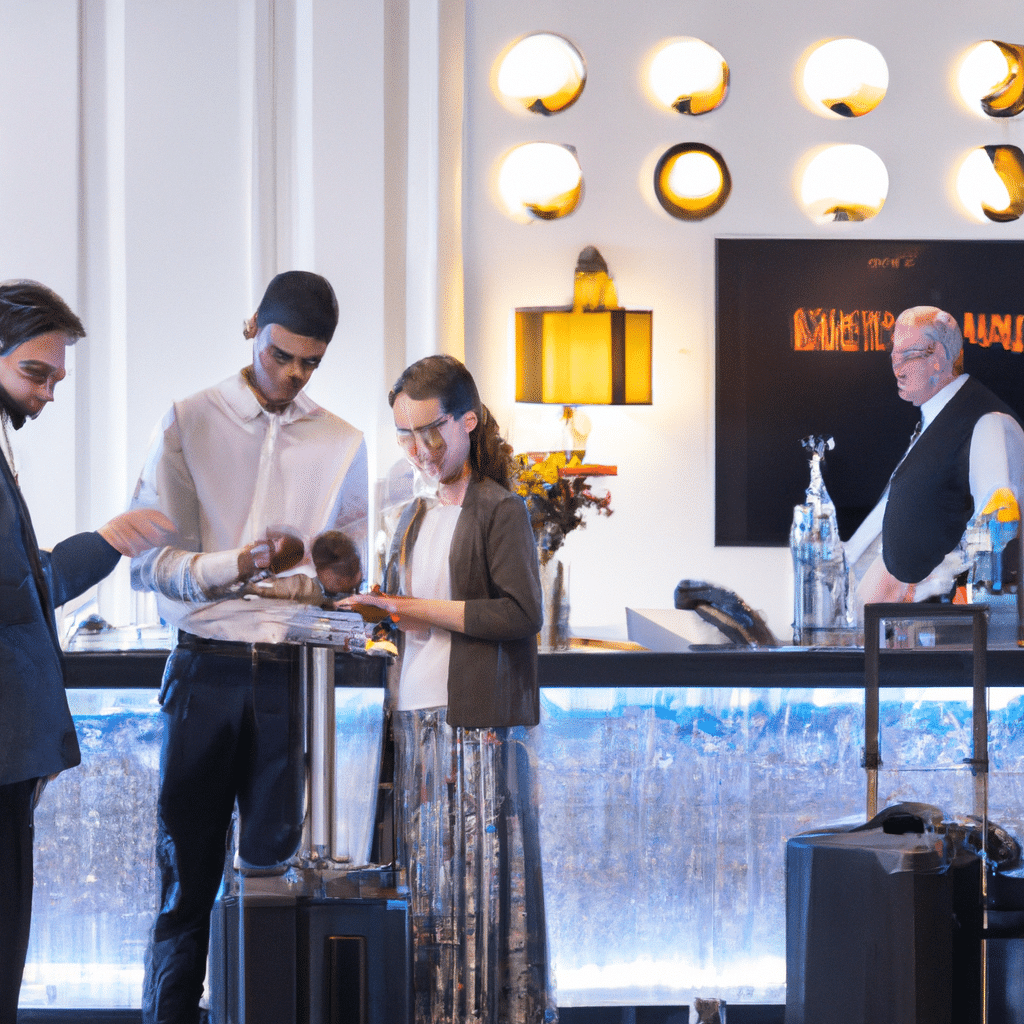The Impact of IoT on the Hospitality Industry
The hospitality industry is constantly evolving, and with the rise of the Internet of Things (IoT), it is set to change in ways we never thought possible. IoT is the connection of everyday devices to the internet, allowing for data to be collected and analyzed in real-time. This technology has the potential to revolutionize the hospitality industry, from improving guest experiences to optimizing operational efficiency. In this article, we will explore the impact of IoT on the hospitality industry and how it can help businesses stay ahead of the competition.

Improved Guest Experiences
One of the biggest advantages of IoT in the hospitality industry is the ability to enhance guest experiences. IoT devices can be used to personalize guest experiences, from offering personalized recommendations to customizing room temperatures to suit individual preferences. Smart speakers can be installed in hotel rooms, allowing guests to control various features of their room, such as lighting, temperature, and entertainment systems. This not only makes the guest experience more enjoyable, but it also provides valuable data for hoteliers to improve their services.
Another area where IoT can improve guest experiences is through the use of beacons. Beacons are small, wireless devices that communicate with guests’ mobile devices to provide personalized information and promotions. For example, a beacon can be placed in a hotel lobby, and when a guest walks past it, they will receive a notification on their mobile device welcoming them to the hotel and offering them a discount on their first meal at the hotel restaurant. This type of personalized service can go a long way in enhancing guest experiences and building loyalty.
Operational Efficiency
In addition to improving guest experiences, IoT can also help hotels optimize their operational efficiency. IoT devices can be used to monitor and control various aspects of a hotel’s operations, from energy consumption to inventory management. For example, smart thermostats can be installed in hotel rooms, which can automatically adjust the temperature based on occupancy levels, saving energy and reducing costs.
Another area where IoT can improve operational efficiency is through predictive maintenance. IoT sensors can be placed on equipment such as HVAC systems and elevators, which can detect when maintenance is required before a breakdown occurs. This can help hotels avoid costly repairs and downtime, ensuring that guests are not inconvenienced.
Enhanced Safety and Security
IoT can also improve safety and security in hotels. IoT sensors can be installed in hotel rooms, which can detect smoke, carbon monoxide, and other potential hazards. This can help prevent accidents and ensure that guests feel safe and secure during their stay.
Another area where IoT can improve safety and security is through the use of facial recognition technology. Facial recognition technology can be used to identify guests as they enter the hotel, ensuring that only authorized individuals are granted access to the hotel premises. This can help prevent unauthorized access and ensure that guests feel safe and secure during their stay.
Potential Challenges
While IoT has the potential to revolutionize the hospitality industry, there are also potential challenges that need to be addressed. One of the biggest challenges is the need for data security. As hotels collect and analyze more data, they need to ensure that they have robust security measures in place to protect guest data from cyber attacks.
Another challenge is the need for staff training. As hotels adopt more IoT devices, staff need to be trained on how to use and maintain them. This can be a significant challenge, especially for larger hotels with a large number of employees.
Conclusion
In conclusion, IoT has the potential to revolutionize the hospitality industry, from improving guest experiences to optimizing operational efficiency. However, hotels need to be aware of the potential challenges and take steps to address them. By embracing IoT, hotels can stay ahead of the competition and provide guests with personalized, memorable experiences that will keep them coming back.












